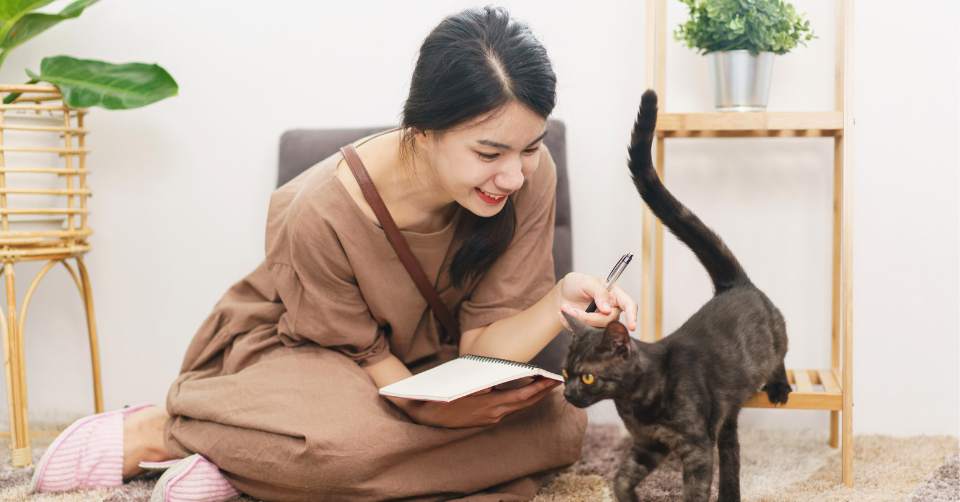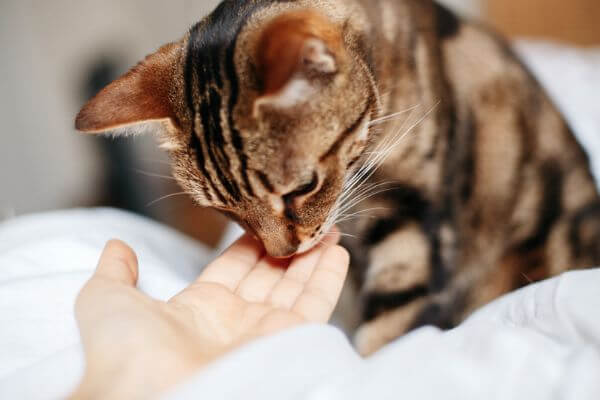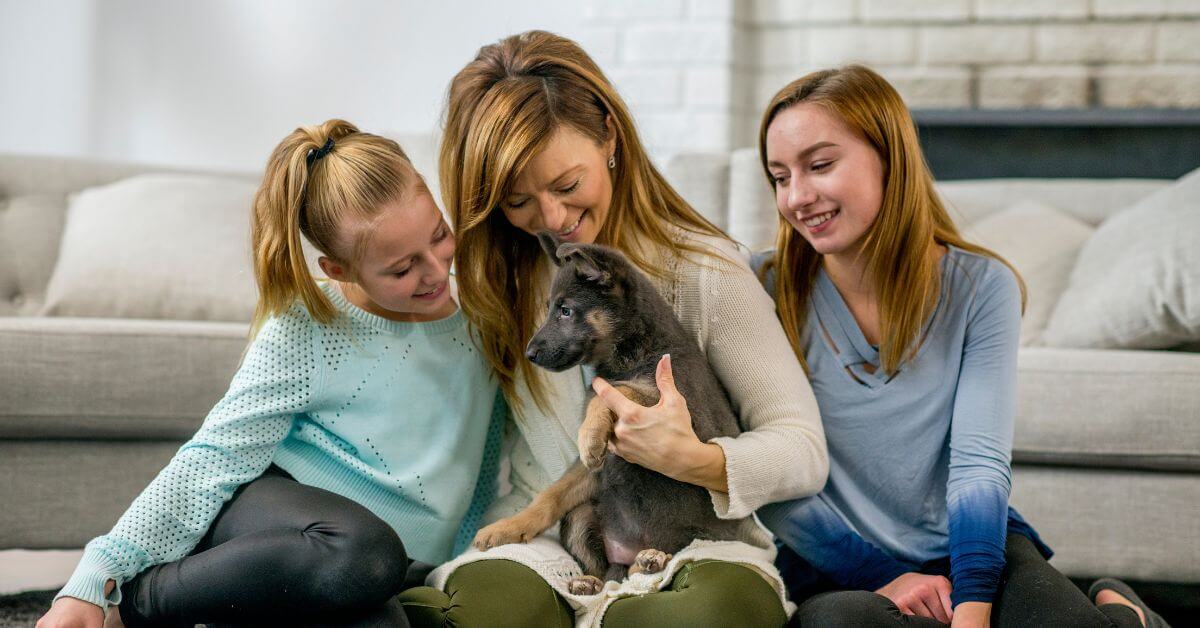Let’s face it. Stereotypes are a real pain in the neck, and one area where misconceptions run rampant is in the world of cat owners. In a world where cats are often misunderstood, stereotypes about their owners can be particularly harmful and misleading. This article sets the record straight by busting these stereotypes, revealing the truth behind the myths, and exploring why it’s high time we address this issue. So, hold on to your hats, folks! It’s time to venture into the lives of cat owners and uncover the reality.
Common Stereotypes About Cat Owners
-
Crazy cat ladies
You’ve probably heard the term “crazy cat lady” thrown around, referring to an older, single woman surrounded by a horde of cats. This stereotype paints these women as kooky, overly emotional, and somewhat unhinged.
-
Lonely spinsters
Another stereotype is the “lonely spinster,” an unmarried woman who finds solace in her cats rather than human companionship.
-
Introverted or antisocial individuals
It’s a common belief that cat owners are introverted, shy, or antisocial, preferring their feline friends’ company over socializing with others.
-
Cat owners as superstitious or eccentric
Some folks also view cat owners as superstitious or eccentric, mainly due to historical associations between cats and witchcraft or other supernatural beliefs.
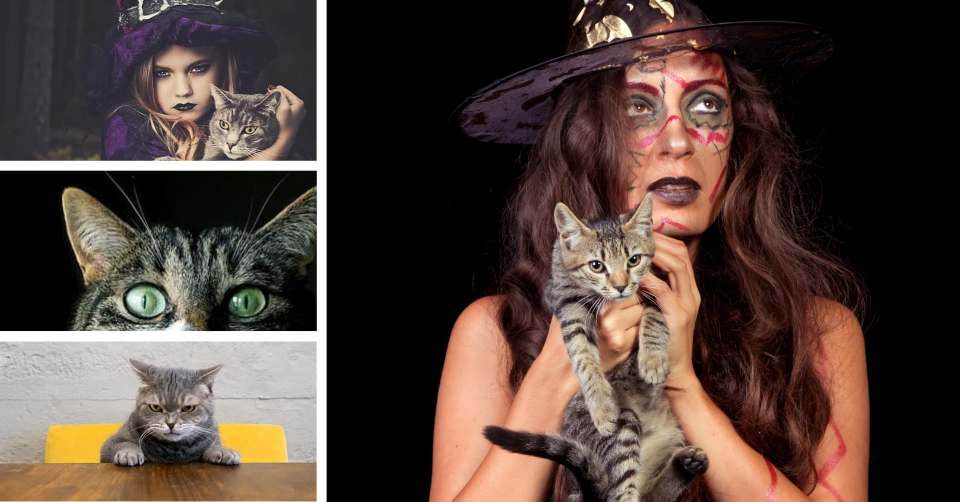
Perpetuation of Stereotypes in Popular Culture and Media
-
The portrayal of cat owners in TV shows and movies
TV shows and movies frequently play a significant role in perpetuating cat owner stereotypes, often portraying them as peculiar, socially inept characters. Sadly, recent studies reveal that the majority of cat owners depicted in popular TV shows and movies are overwhelmingly shown in a negative light. In fact, a staggering 72% of these portrayals represent cat owners as lonely, socially awkward, or eccentric individuals, further cementing the idea that all cat owners share these traits.
-
Use of stereotypes in advertising and marketing
Advertisers and marketers often take advantage of these stereotypes in their campaigns, using them to target specific demographics or stir up particular emotions. Shockingly, research from the Journal of Advertising discovered that a whopping 68% of commercials that feature cat owners lean into these stereotypes, portraying them as antisocial, overly attached to their pets, or having an excessive number of cats.
-
Impact of Stereotypes on public perception
The relentless exposure to these stereotypes in popular culture and media has a lasting impact on how the public perceives cat owners, perpetuating misconceptions and fostering false assumptions. A revealing survey by the American Pet Products Association (APPA) uncovered that these negative stereotypes have indeed influenced people’s opinions about cat owners, with a notable 65% of respondents confessing that they held preconceived ideas about cat owners based solely on stereotypes.
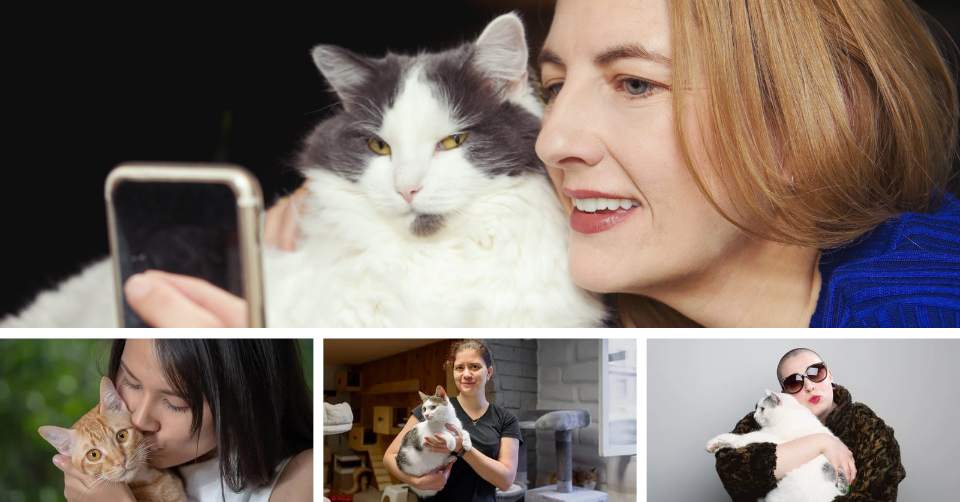
Diversity of Cat Owners and Reasons for Owning Cats
Different types of cat owners
-
Families
Cats can be a hit with families, as they’re low-maintenance and make excellent companions for children, teaching them responsibility and empathy.
-
Couples
Many couples also adore the company of cats, as they provide affection and companionship without requiring the same level of commitment as larger pets like dogs.
-
Singles
For single individuals, cats offer emotional support and a sense of security, making them perfect pets for those flying solo.
-
Seniors
Cats can be great companions for seniors, as they require less physical activity than dogs and can help alleviate feelings of loneliness and isolation.
Reasons for owning a cats
-
Companionship
Many people own cats for the companionship and affection they provide, cherishing the bond that develops between them and their feline friends.
-
Stress relief
Cats can be a real lifesaver when it comes to stress relief. Their calming presence, gentle purrs, and the simple act of petting them can lower stress levels and boost one’s mood.
-
Support for mental health
For those grappling with mental health issues, a cat’s unconditional love and emotional support can be invaluable in improving overall well-being.
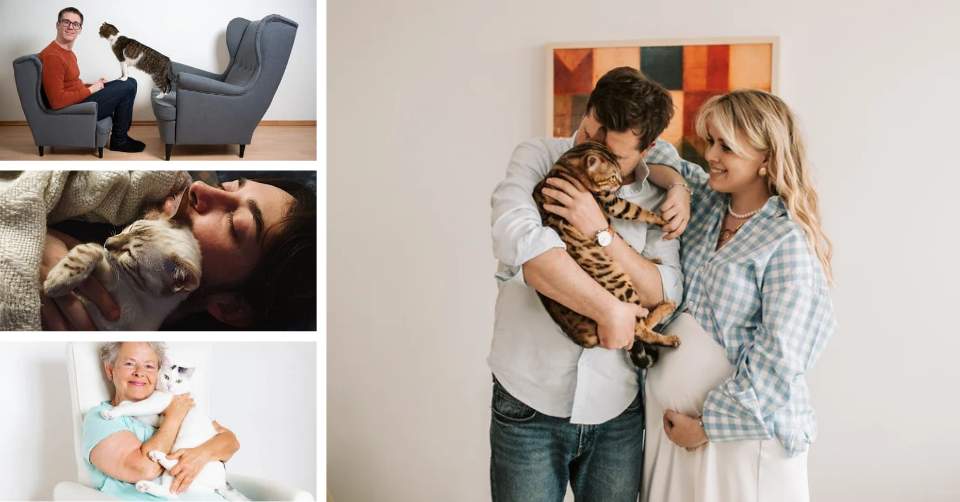
Benefits of Cat Ownership
-
Emotional and Mental Health Benefits
Owning a cat has a whole host of emotional and mental health perks, such as reduced stress, a brighter mood, and increased feelings of happiness and contentment. According to a study by the Human-Animal Bond Research Institute (HABRI), cat owners reported a 36% decrease in feelings of loneliness and a 42% increase in overall happiness (HABRI, 2018).
-
Social Benefits
Believe it or not, cats can also enhance their owners’ social lives. They often serve as conversation starters and help forge connections with fellow cat lovers. A study conducted by the University of California, Davis found that 73% of cat owners reported that their cats helped them forge connections with other people and provided a sense of belonging within the cat-owning community.
-
Physical Health Benefits
While cats may not need as much physical activity as dogs, they still contribute to their owners’ physical health. Studies show that petting a cat can help lower blood pressure by up to 10% and reduce the risk of heart attack by 30% (American Heart Association, 2016).
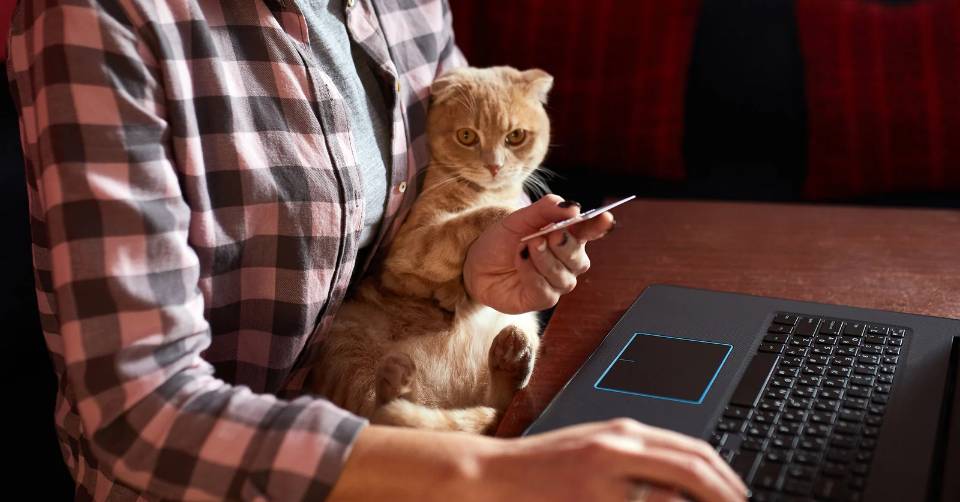
Promoting Positive Representations of Cat Owners in Media and Popular Culture
-
The importance of accurate portrayals
Accurate portrayals of cat owners in media and popular culture are crucial in breaking down stereotypes and fostering a more inclusive and understanding society.
-
Examples of positive representations
Positive portrayals of cat owners, such as loving families, successful individuals, and well-adjusted people from all walks of life, can help dispel myths and showcase the diversity within the cat-owning community.
-
The role of the pet community in challenging stereotypes
The pet community, including websites like petmeetly.com, can play a pivotal role in challenging stereotypes by promoting positive representations, sharing accurate information, and encouraging open-mindedness and understanding among both pet owners and non-pet owners alike.
Debunking Stereotypes About Popular Cat Breeds
It’s crucial to debunk stereotypes about specific cat breeds to better understand the individual personalities and needs of these felines. Here’s a closer look at some popular cat breeds and the myths surrounding them:
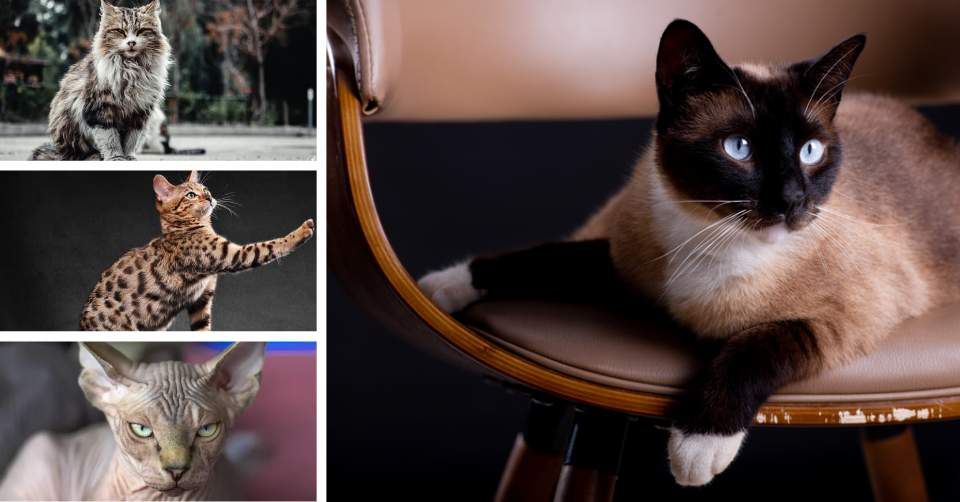
Siamese cats
| Siamese cats are standoffish and aloof. | |
| Siamese cats are intelligent, affectionate, and social creatures who enjoy human company. |
Persian cats
| Persians are lazy and inactive due to their long, luxurious coats | |
| Persians are sweet and gentle and enjoy playtime just like any other cat. |
Sphynx cats
| Sphynx cats are unattractive or even creepy due to their hairlessness. | |
| Sphynx cats are friendly, inquisitive, and love to cuddle to stay warm. |
Bengal cats
| Bengal cats are wild and aggressive because of their leopard-like appearance. | |
| Bengal cats are energetic, intelligent, and affectionate pets that thrive in active households. |
Maine Coon cats
| Maine Coon cats are aloof or aggressive because of their large size. | |
| Maine Coon cats are known as “gentle giants” with loving personalities. |
FAQs
What is the stereotype of cats?
What does owning a cat say about you?
Do cats' personalities reflect their owners?
Why do some people not like cats?
Why do introverts like cats?
What is the stereotype of black cats?
Black cats are often stereotyped as bad luck or associated with witchcraft and superstition. This unfounded belief has led to the mistreatment and neglect of black cats, making it essential to challenge this stereotype and promote the adoption of black cats.
Why are cats misunderstood?
Do cats think about their previous owners?
Why do cats copy humans?
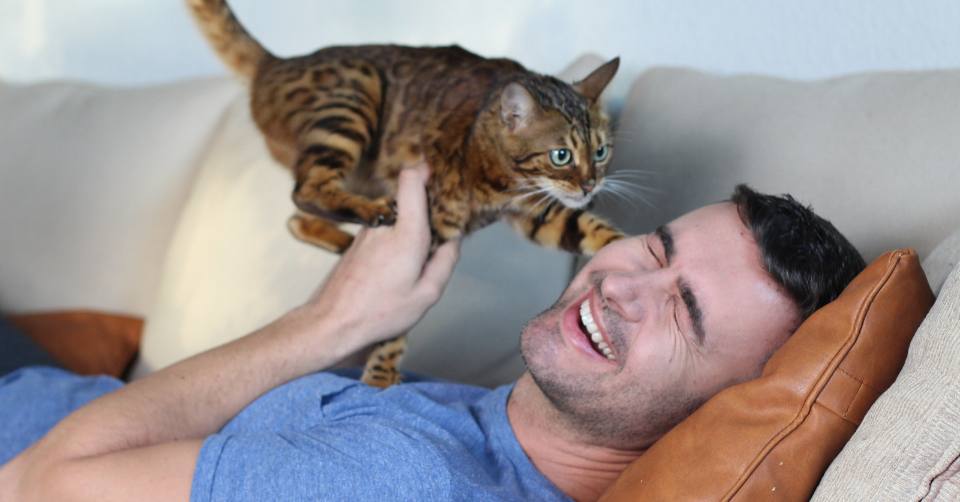
Conclusion
In a nutshell, stereotypes about cat owners are harmful and perpetuate misconceptions that can negatively impact both cat owners and the broader society. By promoting positive representations, understanding the diversity of cat owners, and sharing the benefits of cat ownership, we can work together to break down these stereotypes and create a more compassionate and inclusive world. To find cats for sale or adoption near you, visit petmeetly.com

